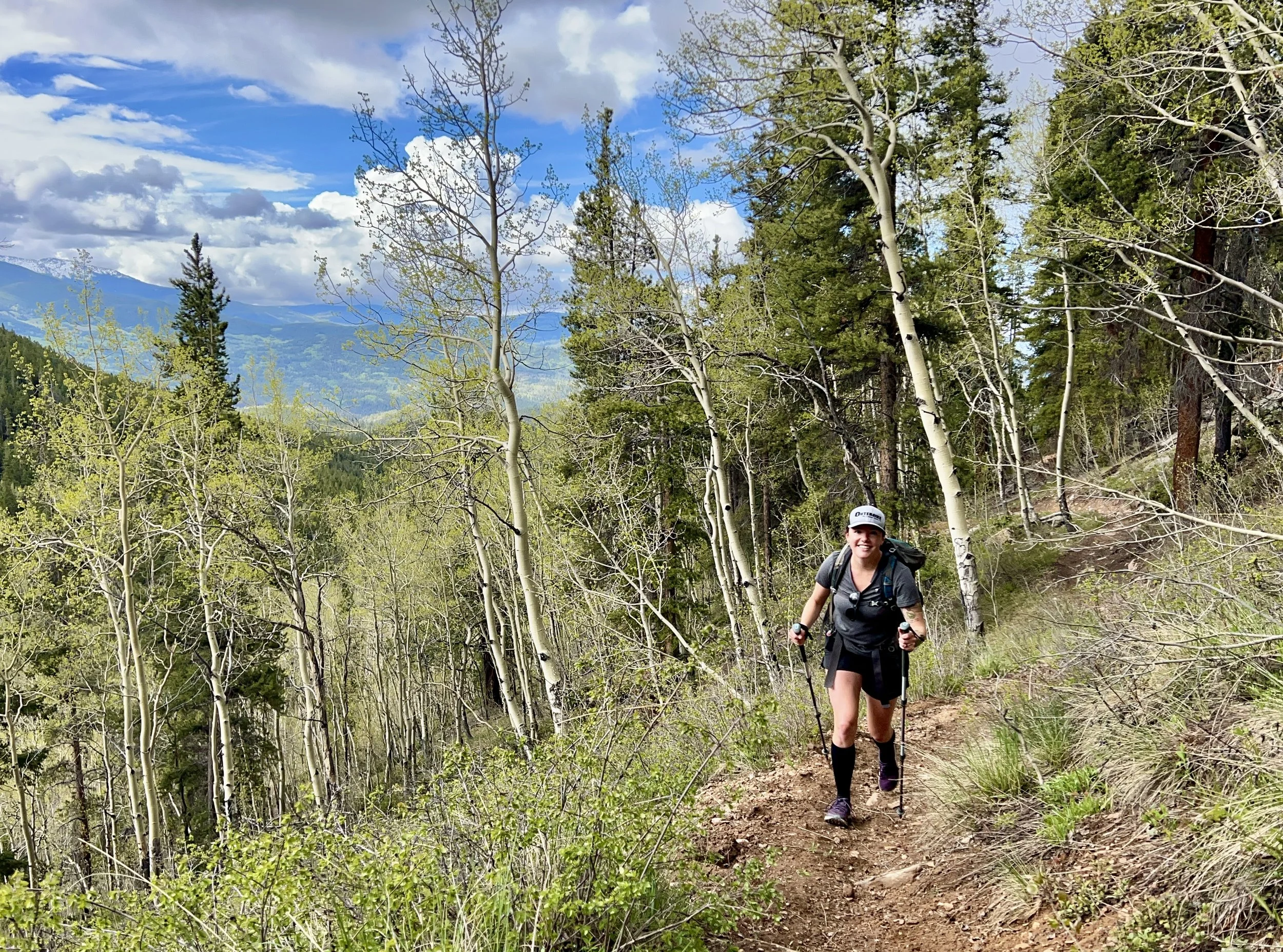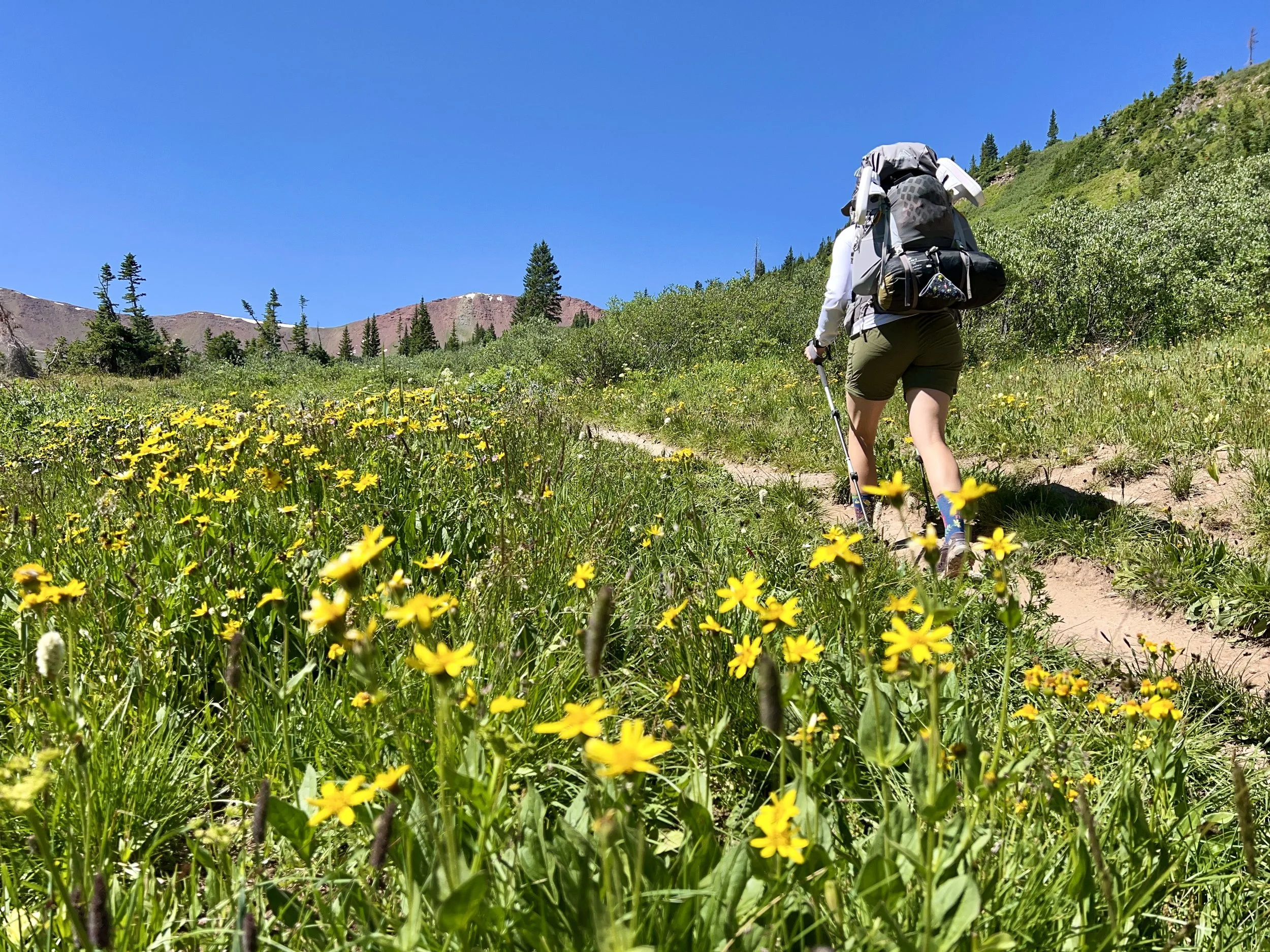Quit Trying to Shame Us with Accusations of Selfishness
Aspen, Colorado
On the surface, it seems ludicrous to think that anybody could argue with the belief that going outside and exercising is good for us, that exercise and nature exposure benefit both our bodies and minds, and that these activities should be prioritized in our lives. But as we pull back the curtain and listen to the not-so-subtle hints and accusations bombarding us, it turns out that this is actually a more contentious belief than maybe we first imagined.
It turns out that we are assaulted by a constant stream of guilt-tripping, shame, and accusations related to the time that we spend prioritizing outdoor exercise. So it's time we looked at this more closely, and tried to figure out exactly what's going on here.
The Secret Shame of Runners
I love the idea of running as a sport, but my body, on the other hand, apparently no longer has any interest in running. Every time in recent memory that I've tried to get back into running, I've ended up injured—to the point that I've decided that it simply isn't worth it anymore. If I can hike for 15 miles with no major issues, but a two-mile run puts me out of action for a week, what is even the point of trying?
I bring this up because I consider myself a "wannabe runner." I appreciate the sport, the dedication, the drive, all of it—even if I don't participate myself. Thus, I have spent quite a bit of time following running media over the years, especially Trail Runner's print magazine, before it was bought, gutted, and shuttered by Outside.
One curious recurrent theme that I've noticed in running media is the idea that running is a "selfish" sport. The basic argument, as I understand it, is that taking time to yourself to do something you love is in some way wrong or "selfish."
This belief was called out overtly in an article about run streaking. As you may know if you've read the Outside 365 Manifesto, the idea of the run streak was one of my inspirations for the Outside 365 project. In a recent article about "The Rise of the Run Streak" published on Runner's World, Alice Barraclough interviews TikTok influencer Savannah Mukeshi about her run streak, which was up to 589 days at the time of publication in January 2023.
As I read through the article, I was really jiving with Mukeshi's perspective on run streaking, getting outside, and the massive physical, mental, and emotional benefits that it provides. But then it all went haywire with this quote:
"I think it would be naive of me to say that I’m not in an extremely privileged position that I get to run every single day," said Mukeshi. "Other people have families and way more responsibilities and stress than I do, and I would hate for anyone to come to my TikTok page and feel like I’m telling them to do what I do. Running is a really selfish and time-consuming sport. You’re choosing to spend that time alone rather than with your loved ones. I feel lucky that running is part of my working day, but I live by myself and I have zero responsibilities." (Emphasis added.)
Woa woa woa, let's slow the roll here. I'm confused: when did spending time alone automatically mean you're being "selfish?" If by "selfish" you mean "focused on the self," then of course that would be true. But the connotation of the world "selfish" is inherently negative. Even the primary definition for the word "selfish" has a negative spin: "lacking consideration for others; concerned chiefly with one's own personal profit or pleasure."
If I've argued for anything on this blog, it's 1) that you have plenty of time and opportunity to accomplish Outside 365, even in the busiest of lifestyles. 2) Exercising outside is one of the most critically important activities that you can prioritize for your health and well-being.
In what world would prioritizing your health be considered a negative thing?
What other athletes carry this kind of shame?
I highlight the connection to running because I'm not aware of any other athletes or sports that carry this much shame around participating in their sport of choice. In fact, I almost never hear this sentiment in the worlds of mountain biking, skiing, snowboarding, kayaking, etc. etc. And so, I found myself wondering why this is. Is it because participants in flow-heavy sports realize that being in flow is possibly the entire point of being alive? Or is it something else?
When I brought this conundrum up to my wife Christine, her first question was, "oh, is the person interviewed in the article a woman?" And yes, yes she is.
In comparison to all of the so-called "extreme" sports that I mentioned above, running is much closer to a 50/50 gender split. In some specific running disciplines, female participation outweighs male participation. Contrast that with mountain biking, which has historically had an 80% male and 20% female split (although hopefully, we're slowly changing that).
I don't think it's a coincidence that this sense of shame around engaging in a sport is so prevalent in a female-dominated sport like running.
Gender roles, running, and shame.
Christine on a 20-mile training day for her first ultra. While I had no interest in participating myself, I fully supported her decision to tackle such an incredible goal!
First, let me acknowledge that I have no idea what the experience of being a female in a male-dominated world is like, so for this article, I'm relying heavily on conversations with my wife and other female athletes that I know.
Based on these conversations and a cursory overview of some of the literature on the topic, it seems that the core issue is that women are much more likely than men to base their self-esteem and self-worth upon the perceptions of others. While we can all at times fall into this trap, from what I've gathered from 1-on-1 conversations and my research, it seems that many women are very likely to have had this belief drilled into them from childhood that their worth is connected to the people around them: their families and their loved ones. You can spot this explicitly in Mukeshi's quotation.
Why is this? The most obvious answer is usually the right one: patriarchal indoctrination propagated by religion.
Analyzing how the patriarchy continues to be propagated to this day and the many ways that it affects women is beyond the scope of this article, but the key point is that women, unfortunately, are much more likely to experience a sense of shame for prioritizing themselves by taking the time to exercise.
Zooming Back Out: Quit Fucking Shaming Us
Even as a man, I've had many people try to implicitly or explicitly shame me for prioritizing my time outdoors. I've dealt with guilt trips because I'd rather go road biking for a couple of hours on Christmas afternoon instead of watching Hallmark movies all day. I've dealt with shame for carving out time to go for a mountain bike ride while visiting my parents. I've been guilt-tripped for being unwilling to cancel an epic trip to the mountains so I can make it to some cousin's wedding who I barely know. And don't even get me started on the massive amount of internal shame I used to feel for wanting to ski powder every Sunday instead of sitting in a boring-as-sin church service. Shit, sin would have been WAY less boring than the many hundreds of church services that I've sat through in my life.
I've definitely caved to this guilt-tripping and internal shame so many times over the decades, but I've slowly begun to recognize it and acknowledge it for what it is. I've also made the conscious decision to choose values that help me create my ideal life, and to then prioritize living in alignment with those values.
When I notice somebody is trying to put even an ounce of guilt on me for doing what I love, for participating in one of the most important activities that give value and meaning to my existence, that immediately raises a red flag for me. If enough red flags get raised, that means it's time to start cutting that person out of my life (better yet: don't let them in to begin with).
Why would you want to surround yourself with people who guilt-trip or shame you for prioritizing your health and your passions—the activities that make you light up and enjoy life? Why would you accept that from the people around you?
Sometimes, even if we wouldn't accept it from the people around us, we're still willing to accept the shame from ourselves. I definitely struggled with my own internal shame connected to my desire to be in the mountains every Sunday morning instead of in church. This sense of internal shame sounds like it might be the problem in Mukeshi's case. She even acknowledged that she has no family ties that keep her from completing her run streak every day, and even still she seems to carry so much guilt for being "selfish" by running every day.
We need to break this false narrative. We need to rewrite this script. This is no way to live.
It's Time to Prioritize Our Health
Aspen, Colorado
As we've identified, exercising outside is unquestionably good for our mental and emotional health. To rewrite the script of guilt-tripping or shame connected to prioritizing our outdoor time, perhaps all we need to do is simply remind ourselves of our why we're doing what we do whenever those feelings of guilt or shame arise.
Really, I can't say it any better than my friend Julia Fritz did in an Instagram message a few months ago:
"Moving my body outside is the best medicine, and if I don't take it, I regret it. Life can't get too busy to do the things that make you feel more like yourself. Life-giving choices should be nonnegotiable." (Emphasis added)
Life-giving choices should be nonnegotiable—amen to that, Julia! When we correctly identify our "why" and realize that taking this time for ourselves to exercise and be outside is so life-giving, it seems ludicrous to ever compromise it. It seems ludicrous to accept that guilt or shame from other people, or even from ourselves.
Savannah Mukeshi, if you happen to stumble upon this blog post, let me personally affirm that by prioritizing your run streak, you are doing exactly what you need to do to live a fantastic life filled with happiness, health, and joy—right here, right now. You're doing it today, and you're doing it right!
If we can break these scripts of guilt and shame, if we can prioritize our life-giving time, we can continue to create our ideal lives right here, and right now.
Now is the time. Begin.



